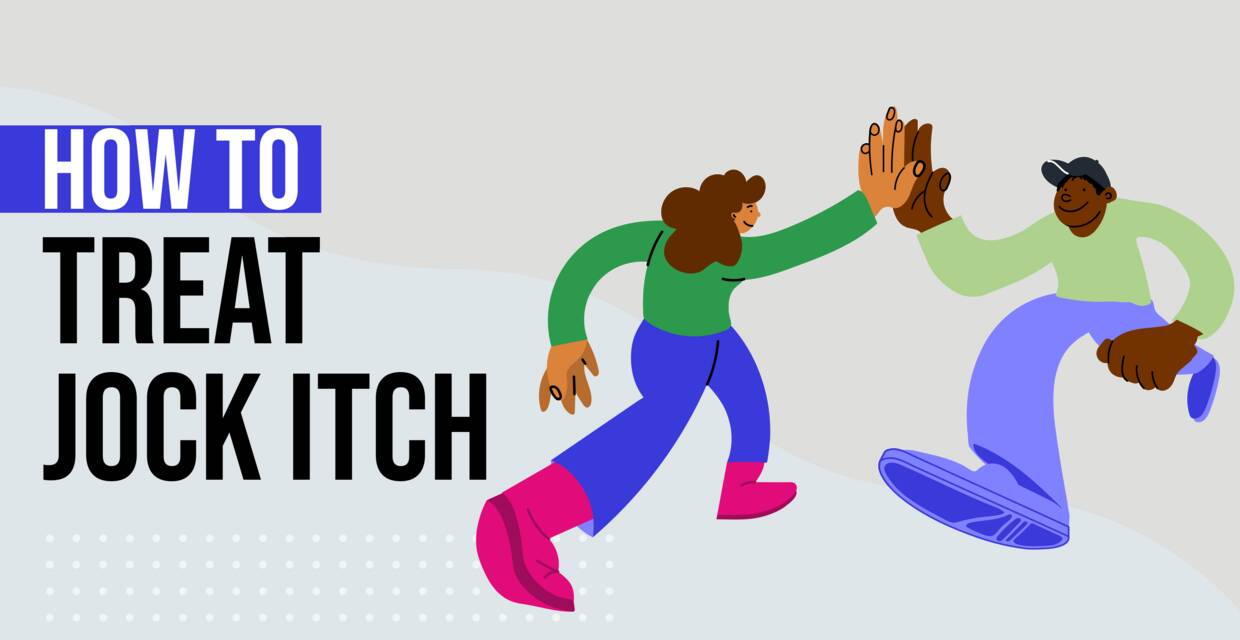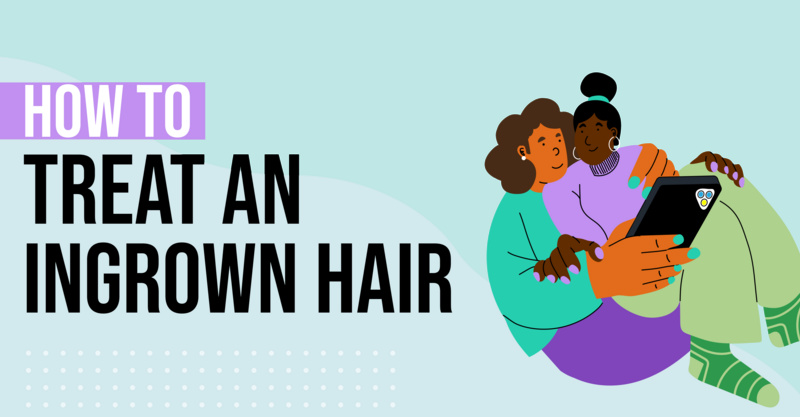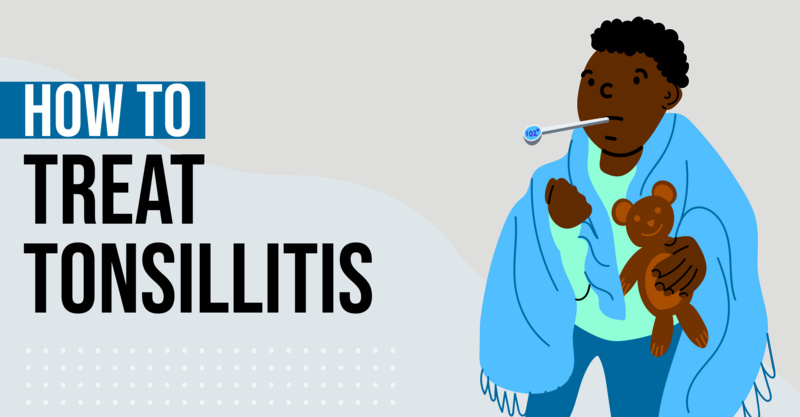Key Points
- Jock itch is a common fungal infection, particularly among male athletes, that affects the skin around the genitals, inner thighs, and buttocks.
- The infection is characterized by symptoms such as itching, burning, redness, rash, and flaking skin.
- Home remedies for jock itch include over-the-counter anti-fungal creams, using powder in skin folds, wearing loose clothing, and applying tea tree oil.
- If the condition worsens or spreads, it's recommended to seek medical attention.
- Prevention strategies include good hygiene, using talc-free or antifungal powder, wearing breathable clothing, and not sharing personal items like towels or clothes.
Jock itch may sound like something only athletes deal with, but the truth is anyone can get jock itch. It is, however, more common in male athletes because they tend to sweat more, which provides a great environment for fungus to grow, according to GoodRX. They explain that jock itch is a contagious fungal infection that affects the skin around the genitals, inner thighs, and buttocks.
Symptoms Of Jock Itch
Jock itch is caused by the same fungus that causes athlete’s foot and ringworm and thrives in moist environments like damp workout clothes and sweaty skin fold, according to the Cleveland Clinic. They note that the symptoms of jock itch include:
- Itching and burning in the groin area
- Redness and rash in the groin, inner thighs, or buttocks
- Flaking, peeling, or cracking skin
- A rash in the shape of a ring with bumps or blisters around the outside of the ring
Home Remedies For Jock Itch
1. Use Over-the-Counter Anti-Fungal Cream
The first line of treatment for jock itch is over-the-counter anti-fungal creams, according to GoodRX. They note that these creams can be found at most drugstores—some brand names that you may see include Lotrimin, Tinactin, and Lamisil. GoodRX recommends that you apply the anti-fungal cream of your choice to your rash 2 to 3 times a day for about 2 weeks (even if the rash starts to look before then).
2. Avoid Scratching
A jock itch rash is usually quite itchy—and while it may be tempting to scratch, doing so can make the infection worse and increase the risk of spreading it to other parts of the body. GoodRX recommends that you try to avoid scratching as much as possible.
3. Use Powder To Keep Skin Folds Dry
Jock itch thrives in warm, moist environments—so keeping the affected area dry is essential for healing, according to GoodRX. They recommend that you use powder to keep the area dry and prevent further irritation. Some of the powders they recommend include:
- Baby powder
- Cornstarch
- Antifungal powders
- Any other talc-free powders
4. Wear Loose-Fitting Clothing
Tight clothing can trap moisture and heat, which can make jock itch worse, according to GoodRX. They recommend that you wear loose-fitting clothing made from breathable fabrics like cotton to allow air to circulate and keep the area cool and dry.
5. Use a Mild Soap
Harsh soaps and shower gels can irritate the skin and make your jock itch worse, according to GoodRX. They recommend that you use a mild, fragrance-free soap when you bathe. They also note that antibacterial soap is unnecessary since jock itch is caused by a fungus rather than bacteria. Antibacterial soaps also contain harsh chemicals that could irritate your skin.
6. Try Tea Tree Oil
Tea tree oil is believed to have antifungal properties, which can help to kill the fungus causing jock itch, according to GoodRX. They note that although tea tree oil won’t cure your jock itch by itself, it may help your anti-fungal cream work faster.
7. Change & Wash Personal Items Everyday
To prevent the spread of jock itch, GoodRX explains that it’s important to change or wash everything that touches your skin (including clothes and towels) every day.
When to see a Doctor for Jock Itch
Most of the time, jock itch can be treated with over-the-counter anti-fungal creams and some lifestyle changes (like better hygiene and using talc-free powder in the folds of your skin). However, the Cleveland Clinic does note some cases when you should consider seeing a doctor:
- If your jock itch doesn’t improve or go away with treatment
- If your jock itch rash looks infected (red, purple, gray, or white skin; irritation and swelling)
- If your jock itch spreads to other areas of your body
How to Prevent Jock Itch
Jock itch is caused by a fungus (the same fungus responsible for ringworm and athlete's foot), and it is very contagious, according to the Cleveland Clinic. Here is what they suggest you do to prevent jock itch:
- Keep good hygiene habits, including thoroughly washing your groin with soap
- Dry your groin area very well after swimming or bathing
- Use a talc-free powder or antifungal powder in areas that are moist (like the folds of your skin)
- Wear loose underwear and pants that allow the area to breathe
- Wear cotton underwear (which absorbs more moisture)
- Wash your clothes after every wear—especially your workout clothes
- Don’t share towels or clothes with others
- Use a separate towel to dry the infected area when you have jock itch
- Avoid sexual contact with anyone who has jock itch until it’s gone
Summary
Jock itch is caused by a fungus (the same fungus that causes athlete's foot and ringworm). It is highly contagious and is common among men and athletes (who both tend to sweat more). There are several things you can do to prevent jock itch, but if you find yourself with a case of it anyway, here’s what to do for it:
- Get an over-the-counter anti-fungal cream and follow the package instructions
- Avoid scratching the area
- Use a talc-free powder in the folds of your skin to help keep them dry
- Wear loose-fitting clothes and cotton materials (which help wick away moisture)
- Use mild soap to keep clean
- Try adding tea tree oil to your anti-fungal cream
- Change your underwear, workout clothes, and towels after one use
- Avoid sexual contact until your jock itch is completely healed
Frequently asked questions
What is jock itch and who is most likely to get it?
Jock itch is a fungal infection that affects the skin around the genitals, inner thighs, and buttocks. It's most common among male athletes due to their increased sweat production.What are the symptoms of jock itch?
Symptoms of jock itch include itching, burning, redness, a rash, and flaking skin.How can I treat jock itch at home?
You can treat jock itch at home using over-the-counter anti-fungal creams, avoiding scratching, using powder to keep skin folds dry, wearing loose-fitting clothing, using mild soap, applying tea tree oil, and daily changing and washing of personal items.When should I see a doctor for jock itch?
You should consult a doctor if your condition doesn't improve, looks infected, or spreads to other parts of your body.How can I prevent jock itch?
You can prevent jock itch by maintaining good hygiene, drying the groin area thoroughly after bathing, using talc-free or antifungal powder in moist areas, wearing breathable clothing, washing clothes after every use, not sharing towels or clothes, using a separate towel for the infected area, and avoiding sexual contact with anyone with jock itch.Can jock itch spread to other parts of the body?
Yes, jock itch can spread to other parts of the body, especially if left untreated or if personal hygiene is poor.Is jock itch contagious?
Yes, jock itch is contagious. It can be passed on through direct skin contact or by sharing personal items like towels or clothes.Can women get jock itch?
Yes, while it's more common in men, women can also get jock itch.
Solv has strict sourcing guidelines and relies on peer-reviewed studies, academic research institutions, and medical associations. We avoid using tertiary references.


 LinkedIn
LinkedIn









